For more than 50 years, human ingenuity has created increasing distance between natural and technologically mediated human reproduction. As a result, the embryo, a site and object of technological innovation, has acquired a life of its own, outside the maternal body, capable of developing to some degree in laboratory or industrial settings. Concurrently, biologists and biotechnologists have synthesized embryo-like entities to probe human development and disease and constitute a wellspring of diagnostic and therapeutic products. What do these projects mean for human reproduction and corollary meanings of human integrity, rights, health and disease, and the nature of human relations– familial, legal, and social? The Global Observatory for Genome Editing explores these questions with a lecture and panels featuring conversations between leading scientists, ethicists, legal and policy scholars, religious thinkers and women’s rights advocates.
Program on Science, Technology and Society at HarvardHarvard Kennedy School of Government | Harvard University |
|||||||
|
|
Conferences, Workshops, and PanelsThe Program on Science, Technology and Society at Harvard Kennedy School regularly hosts workshops, seminars, and panels. Below is a list of upcoming and recent panels. Some events have their own web pages that can be accessed by clicking on their titles. Contact the program if you have any questions. 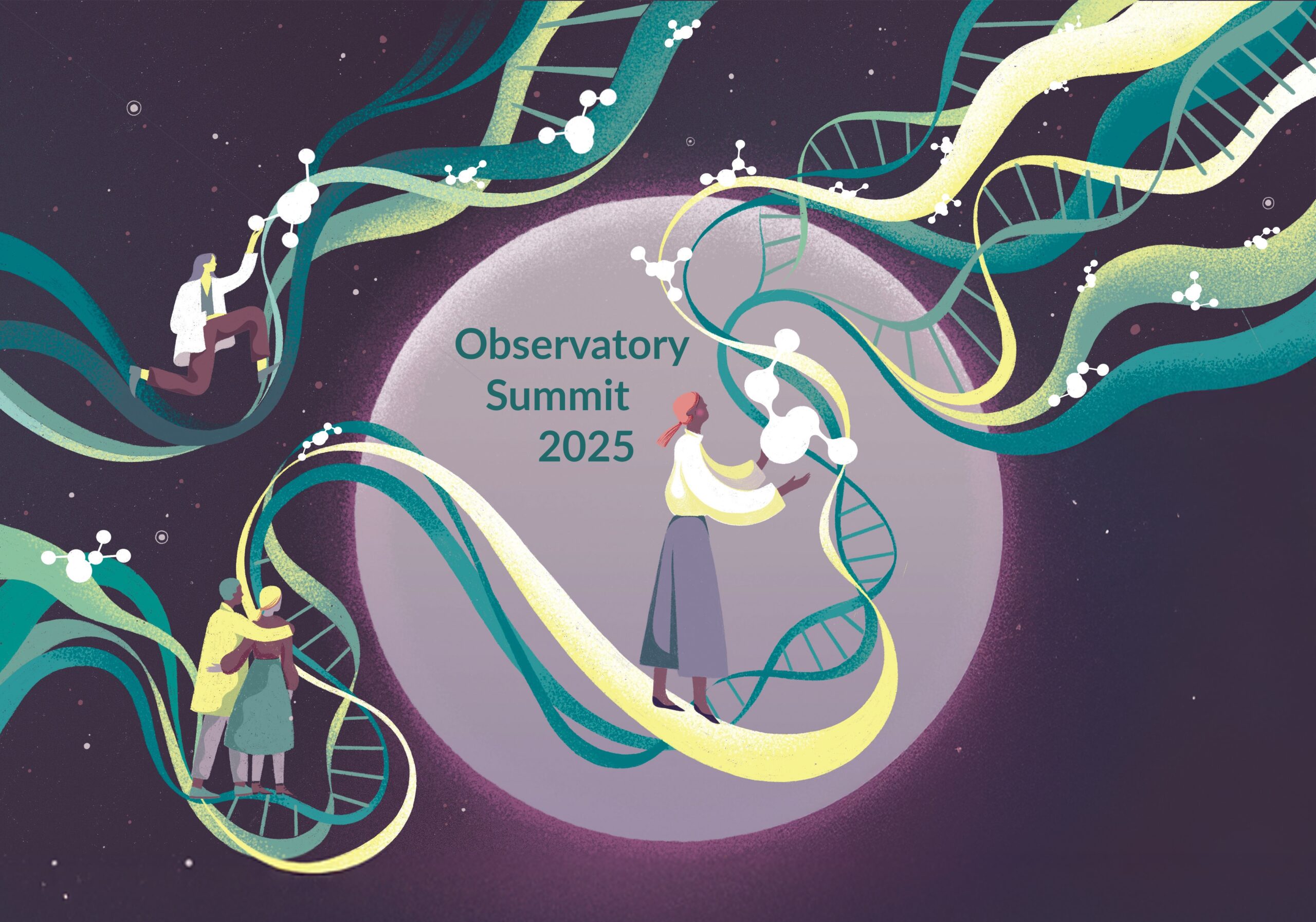 The Global Observatory’s 2025 Summit foregrounds questions about biotechnologies that are altering the meaning of being human. Genome editing, especially of the human germline, raises fundamental questions of the dignity and integrity of human life. Governance concerns once focused on the escape of potentially risky lab-created organisms. Today the more urgent concerns relate to transgressing moral boundaries and violating human integrity. How should we respond? This talk is an intervention in an aspect of the dominant narrative in India today. This narrative emphasizes the superiority of Indian Knowledge Systems stemming from the philosophy of the textual traditions, claiming to pre-empt modern knowledges, and thereby a superiority to it. From my study of Ayurveda and drawing from a host of studies on other ‘traditional’ knowledge systems, I argue that the significance of these knowledges lies in their practices over time, including when they negotiated with modern knowledges. These practices, and by them I mean mainly the systems of production based on these knowledges, are ecologically embedded, while drawing upon a common epistemology. While they owe allegiance to texts, they are adaptive and dynamic over time, which is what actually makes them relevant for today. Further, in the light of the planetary polycrisis, I argue that they offer concrete alternatives as models of sustainable production systems, possibly their greatest value.  As students, we are increasingly experiencing our years of schooling “online.” With the advent of Generative AI, some conversations about how technology is changing and should change learning are afoot in newspaper opinion sections and faculty meetings. Harvard has recently inaugurated several efforts to respond to Generative AI, including the creation of task force on GenAI and the issuance of responsible experimentation guidelines, yet questions of how these technologies are already changing what learning means at Harvard have yet to be thoroughly explored. 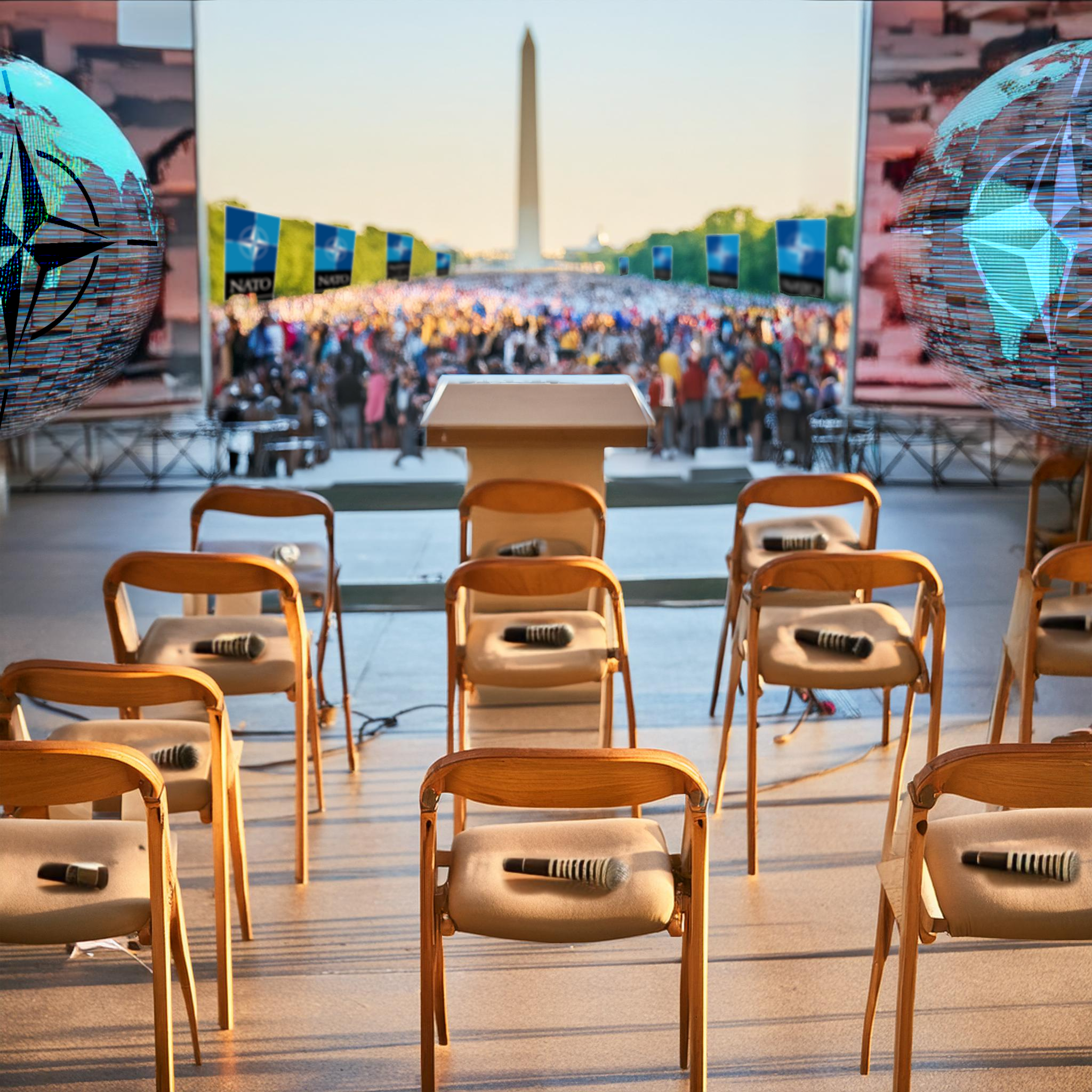 GRiSTS 2024: In 2024, questions of the future of democracy have taken center stage as perhaps never before. More than one-quarter of the people on earth were called to the polls, and the image of two billion voters on the move appears as a celebration of the democratic franchise. Yet we are also flooded with fears of authoritarian rule, anti-democratic demagogues, misinformation, election tampering, and specters of social-media induced violence. Elections in this context have come to be labeled existential: a series of referenda on the continued existence of democracy itself. The tensions between these narratives, of democracy on the march and democracy rushing toward its own destruction, emerge in stark binaries: truth against lies, debate against violence, reason against irrationality, and institutions and the rule of law against populist anarchy. These binaries remind us that the sources of legitimacy in our political institutions extend beyond voting. They get at the heart of how political order is constituted by, and constitutive of, shared ideas about right knowledge, good public reason, and legitimate technologies of self-rule. For its fifth edition, the GRiSTS organizing committee invites abstracts that deal with how the sciences (including social sciences) and technology structure the realm of politics, re-configure democratic life, and help to produce new imaginations of a global polity. Comparative projects are particularly welcome. Prospective presenters should submit abstracts of up to 350 words. Co-sponsored by the Harvard Center for the Environment and the Weatherhead Center for International Affairs 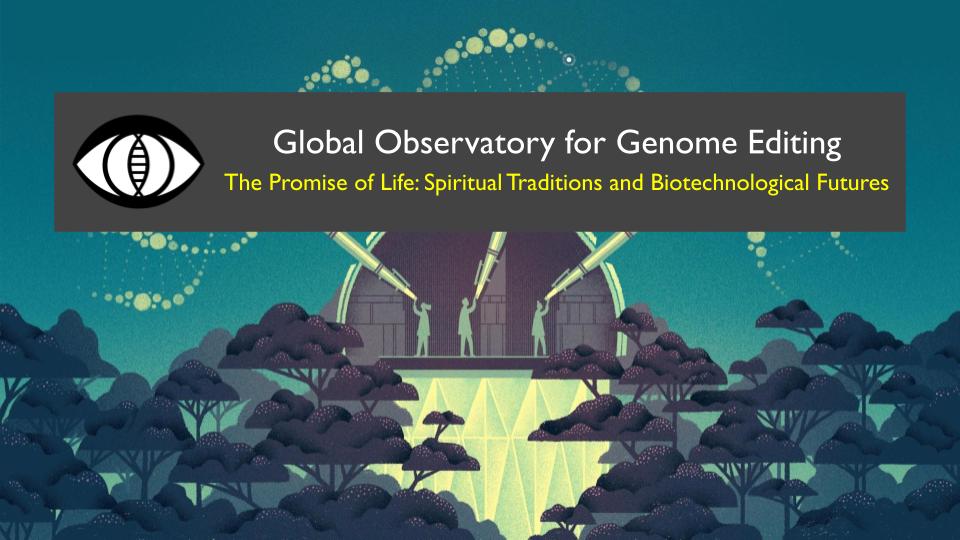 The world’s religious traditions offer some of the most sophisticated bodies of thought on fundamental questions at stake in debates around the life sciences and biotechnology: What does it mean to be human? What is the purpose of human life? What are the meanings of suffering and mortality? What are the limits of human autonomy? Religions contend with metaphysical questions of mind, body and spirit without reducing them to mere materiality. Nonetheless, engagement with such questions, particularly when informed by religious thought, often gets characterized as vague, insufficiently reasoned, or traditionalist thought—irrationally asserting that scientists are “playing God”—rather than as serious openers to conversations about the moral limits of technological intervention. Restricting or dismissing the place of religious voices in ethical debates with such arguments is symptomatic of a more general tendency to privilege scientific developments and presumptively secular ethical framings, thereby constricting reflection on how such developments serve human values in the name of universal values. This convening seeks to reevaluate this tendency by approaching religious and spiritual traditions as fonts of moral understanding on questions fundamental to human life. It reverses the conventional script: rather than foregrounding specific biotechnologies as sites of ethical evaluation, we place fundamental questions of the meaning of being human front and center. We ask: how have religious traditions understood the integrity and purpose of human life, and how have they defined limits of technology? How can religious thought inform critical reflection on the meaning of scientific and technological ambitions and developments? What configures or constrains the potential contributions of religion to collective reasoning and public ethical deliberation on new technologies? And how should religious traditions figure in the development of deliberative capacity oriented to a cosmopolitan ethics?  This workshop marks the culmination of several years of comparative research under the umbrella of the Belmont Forum for Collaborative Research. Entitled Governance of Sociotechnical Transformations (GoST), the project focused on transformations to sustainability in five countries (Germany, India, Kenya, UK, US) in three areas of crucial importance for sustainable development: energy systems, agriculture, and urban digital infrastructures. Each implicates intricate North-South linkages that need to be better understood for advancing global sustainability efforts. The GoST project used sociotechnical imaginaries as a conceptual tool to make sense of how collective imaginations of transformation have determined present conditions and are projecting new futures. A key finding of the project is that challenges in all three focal areas are related to prevailing imaginaries of progress, and solutions may require radically new imaginaries or new political infrastructures to give effect to submerged and marginalized imaginaries. The event brings together prominent sustainability scholars and policy practitioners, to explore how new technological developments and recent crises such as the Covid-19 pandemic have reshaped the politics of transition at local, national, and global levels. Funded by the Belmont Forum for Collaborative Research 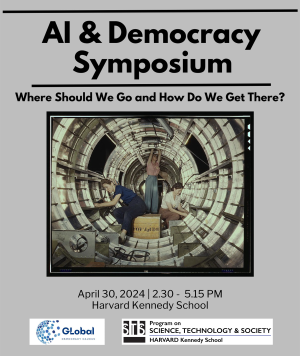 Artificial intelligence (AI) and democracy are ubiquitous topics on campuses today, but rarely are the two brought together in a meaningful way. To address this deficit, in Fall 2023, the Harvard STS Program hosted the Conference on AI & Democracy, to explore why the threats that AI poses to democracy cannot be solved by technical experts alone. Democratic institutions and political organizing are vital to our understanding of the nature of these threats and to devising innovative means of addressing them. On April 30, students in the Global Democracy Caucus at HKS are collaborating with the Harvard STS Program, with support from the Ash Center for Democracy, to bring together academics, policy-makers, and change agents for a series of conversations to push the discussion forward. This afternoon event will address these questions: what do we understand about the impacts AI may have on human lives and our ways of living together in the world, and how might we confront the possible risks of AI through more democratic, cross-sectoral, and cross-national forms of organization and action? Co-organized by the Global Democracy Caucus, with support from the Ash Center for Democracy at Harvard Kennedy School. 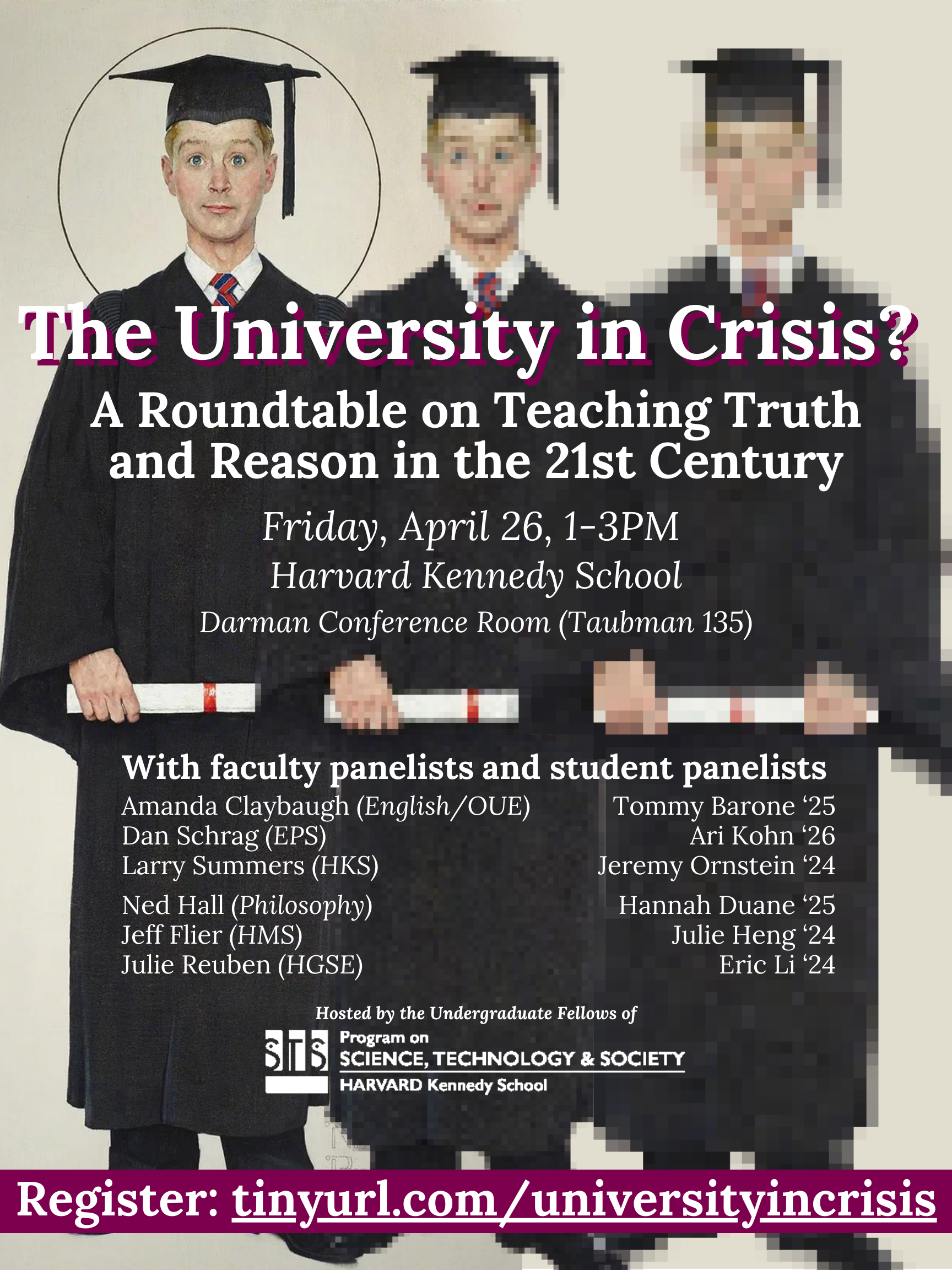 Harvard and universities in the United States writ large have drawn increasing scrutiny in recent years, and more so in recent months, as institutions “in crisis.” The role of the university in society is implicated in several large problems of the 21st century — whether regarding freedom of speech and war in the Middle East, or teaching students and producing research to address what are often termed “grand challenges” that cut across disciplines, including artificial intelligence and climate change. Harvard has recently inaugurated several efforts to respond to some of these issues, yet questions of how universities should aspire to define and serve the public good while shaping what societies know in common reach far beyond specific topics. To address these broader concerns, this discussion-based event aims to step back and reflect on the very nature of the “crisis” in which Harvard finds itself. How do we know the university’s educational mission, who defines it, and where do students’ imaginations of the right ways to meet their needs find, or not find, resonance? How have Harvard’s various educational policy committees framed some of these problems, and what might they be failing to capture? What is the relationship between the experiences of students, faculty, and administrators at Harvard and discourse on digital platforms about these issues? Finally, how might Harvard and other elite universities reimagine what it means to be responsible, yet critical, custodians of knowledge and to cultivate more engaged forms of citizenship? This roundtable will bring together diverse experiences and perspectives to address questions that are vital to the mission of educational institutions in contemporary societies through two panels: What is Harvard today? and What should Harvard be (for)? 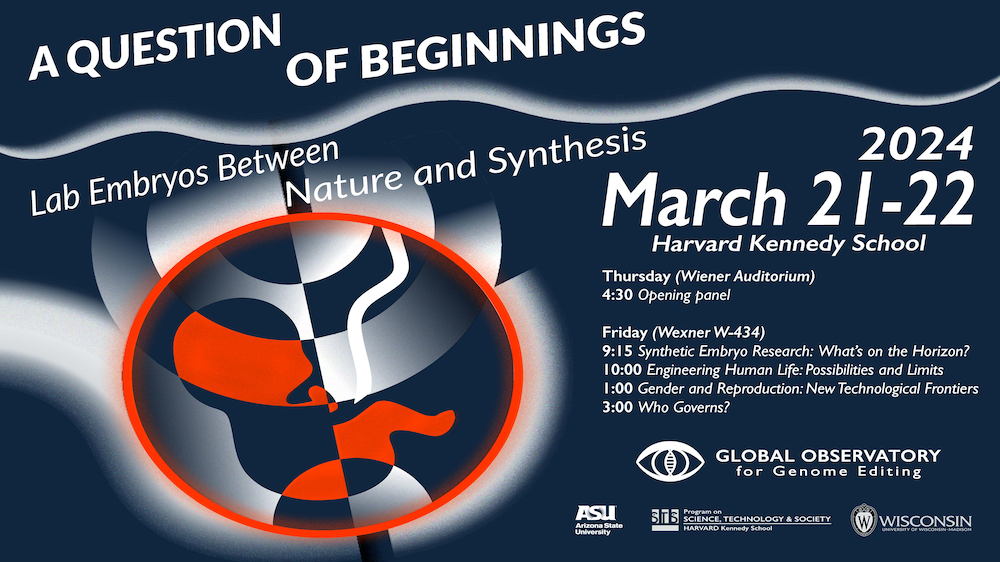 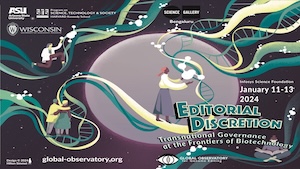 Scientific expertise is generally taken as placeless and universal, whereas values and traditions are seen as culturally particular and, therefore, geographically situated. Accordingly, ethical discussion often begins with the proposition that we must take the science as given, to provide a common baseline for ethical deliberations, and bring in values only downstream in deciding how to govern science and technology. Instead, the Global Observatory for Genome Editing posits that cultures, including those of the Global North, inevitably guide science and technology. Transnational governance of biotechnology must start with such an orientation to arrive at a genuinely “cosmopolitan ethics.” Human genome editing poses unique challenges of governance because it has the potential to change what it means to be human. Applied to the germline, editing transcends the individual and affects multiple generations. Its effects include not only biological transformation of human life but altering social relations—parent to child, doctor to patient, state to citizen—in fundamental ways. Given the increasing porosity of contemporary societies and their research cultures, governance of genome editing technology needs to take on a transnational dimension. Norms and conceptions of what is acceptable and normal tend to vary across economic, political and religious boundaries. Yet the dynamics of international scientific and technological competition tends to push governance in the direction of greater permissiveness for science on the argument that advances in knowledge and technology are inevitable and therefore should be authorized to go forward. India has historically been on the receiving end of the diffusion of biotechnological products and practices from the Global North, for instance, in the cases of genetically modified crops, transnational commercial surrogacy, clinical trials, and displacements of domestic innovation and industrial sectors by foreign intellectual property holders. In many of these cases, North-South asymmetries were seen as opportunities for expanding markets within India, with economic benefits accruing elsewhere. These dynamics illustrate some of the challenges of transnational governance that can be brought into relief through a view from the Global South. Nearly 50 years after the Asilomar Conference on Recombinant DNA, profound ethical and political questions remain about the governance of genetic engineering and enhancement, as technologies capable of altering the meaning and integrity of human life. The Observatory aims to cultivate conversations that widen the range of questions asked of such technologies. The event looks back to look forward. It focuses on the need to think seriously and in new ways about the notion of limits: what moral and experiential repertoires have people drawn upon as they debate limits on technological research and its applications; what major differences can one identify in thinking about these limits; and how, if at all, can productive conversations be constructed across sociocultural and disciplinary divides? Most particularly, we ask what lessons can be learned from some early critics of genetic engineering and their notions of limits on the development and deployment of this technology?  Emergent AI technologies are raising ethical and political questions that cut to the heart of what it means to be a democratic citizen in the 21st century. However, the public conversation on AI has been dominated by tech industry leaders who insist that regulating AI is mostly a matter for technical experts. Furthermore, recurrent arguments for prioritizing technological innovation and pursuing global industry dominance have foreclosed wider debate and reinforced a laissez-faire approach to AI development in the U.S. Serious cross-sectoral dialogue and public mobilization are needed if we are to change course. We aim to animate political consciousness about AI, generate concrete proposals for action both in the U.S. and across national borders, and compel government and industry leaders to move swiftly and decisively to bring greater political accountability to this sector. This event, co-hosted by the Program on Science, Technology, and Society and co-sponsored by the Institute of Politics and the Carr Center for Human Rights at Harvard Kennedy School, calls for a people’s movement to bring AI development under democratic control and steer it in the service of a progressive human future. The three-day event will bring together leading voices on AI and related policy issues and feature prominent figures from government, civil society, academia, and the private sector. MIT Professor Sherry Turkle will deliver a keynote lecture titled "Artificial Intimacy: What are People For?" on the evening of November 30. Targeted workshops on December 1 will assess promising fields of action ranging from federal oversight to labor activism, with panels focusing on Labor and Workers, Competition and Security, Regulation and Government, Transparency and Democracy, and Social Movements and NGOs. On the final day, smaller committees will produce working reports that can be widely circulated to stimulate forward movement in the effort to control AI before it controls us. Co-sponsored by Harvard University Weatherhead Center for International Affairs, Harvard University Center for the Environment (A Center of the Salata Institute), John and Elizabeth McQuillan, the Harvard Institute of Politics, and the Harvard Kennedy School Carr Center for Human Rights. 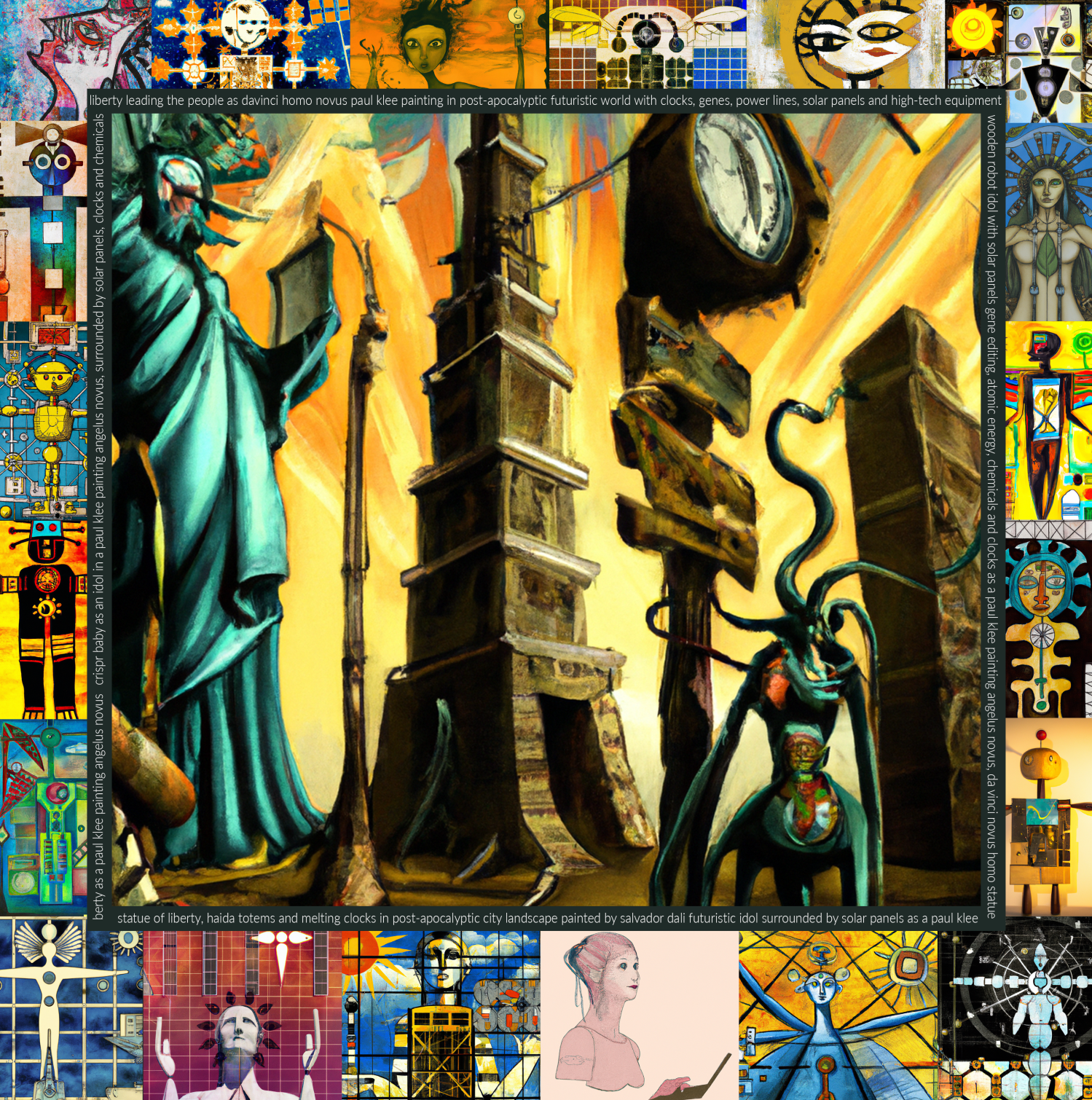 GRiSTS 2023: “Idols of Progress: Technoscience Between Ethics and Trust” calls for papers exploring the place of human values in the production of technoscientific idols of progress and the contested human futures at stake in this process. The conference will take place October 12-14, 2023 at Harvard Kennedy School. Interested presenters should submit (up to 350 word) abstracts of work in STS and neighboring fields. We welcome proposals from a range of technoscientific and historical domains that explore questions such as: What is at stake for democracy when science and technology are seen as sine qua non conditions of progress? How do science and technology stand in for – or get in the way of – broader notions of human flourishing and enlightenment? How are democratic values envisaged when institutions and policies of governance are designed to accompany and legitimize rather than interrogate technoscientific products? We especially welcome papers that investigate the emergence of ‘ethics’ and ‘trust’ as essential companions of technoscience in advanced modern societies and reflect on ways that we, as junior STS scholars, can fashion more critical and cosmopolitan understandings of the place of science and technology in the world. Co-Sponsored by the Harvard Center for the Environment and the Weatherhead Center for International Affairs 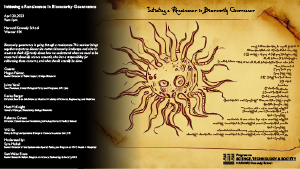 Biosecurity governance is going through a renaissance. This seminar brings together experts to discuss the current biosecurity landscape and what it means to think differently about how we understand when we need to be concerned about life science research, who has a responsibility for addressing those concerns, and what should actually be done. Co-sponsored by the Belfer Center for Science and International Affairs Harvard Kennedy School Program on Science, Technology & Society and FGV Rio de Janerio Law School 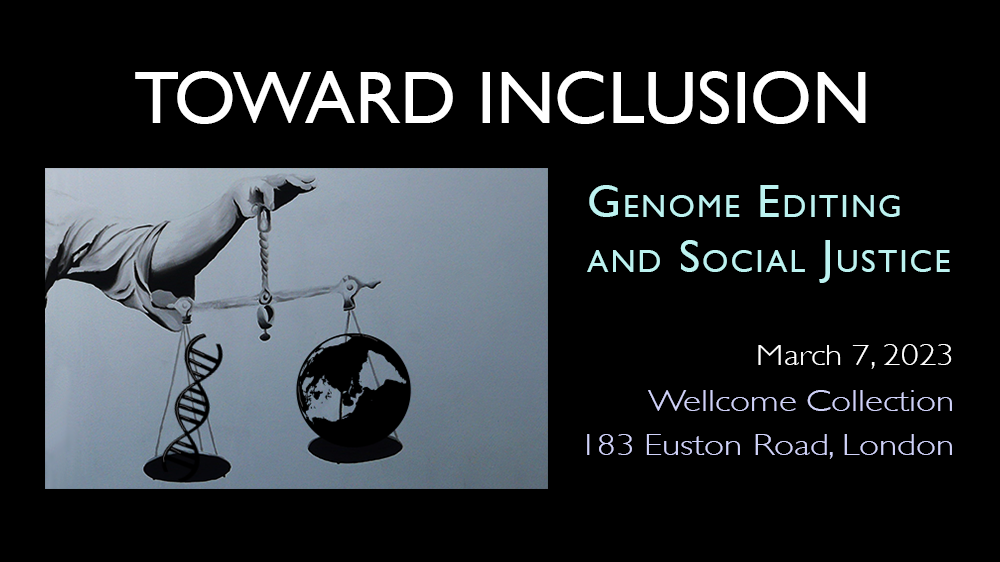 The Global Observatory hosted a convening to complement the Third International Summit on Human Genome Editing. The Summit took place from March 6-8, 2023 at the Francis Crick Institute in London. On the evening of Tuesday, March 7, the Observatory hosted Toward Inclusion: Genome Editing and Social Justice at the nearby Wellcome Collection. This event brought together experts in intergovernmental organization, science and medicine, and ethics—including several Summit organizers—to discuss the constitution of the global and of social justice in the governance of human genome editing. This convening aimed to expand the discussion beyond the limits of the Third International Summit itself. This workshop brings together scholars interested in science and technology in East Asia to engage with the region’s historical, geographic, and political specificities. How do the region’s unique history and partly shared political and economic cultures relate to knowledge-making and technological innovation? Early imaginations of modernity, for example, combined struggles for colonial independence and technological advance. A strong state more often than not came hand in hand with dominant imaginaries of national progress through science. The emergence and contestations of science and technology, from the governance of health or data to the role of renewable energies, play out against and shape a backdrop of social order, with the potential to travel together across borders. After a series of lightning talks by scholars from the Kennedy School, the History of Science department, and the Yenching Institute, among others, discussion will be opened to include the broader audience. 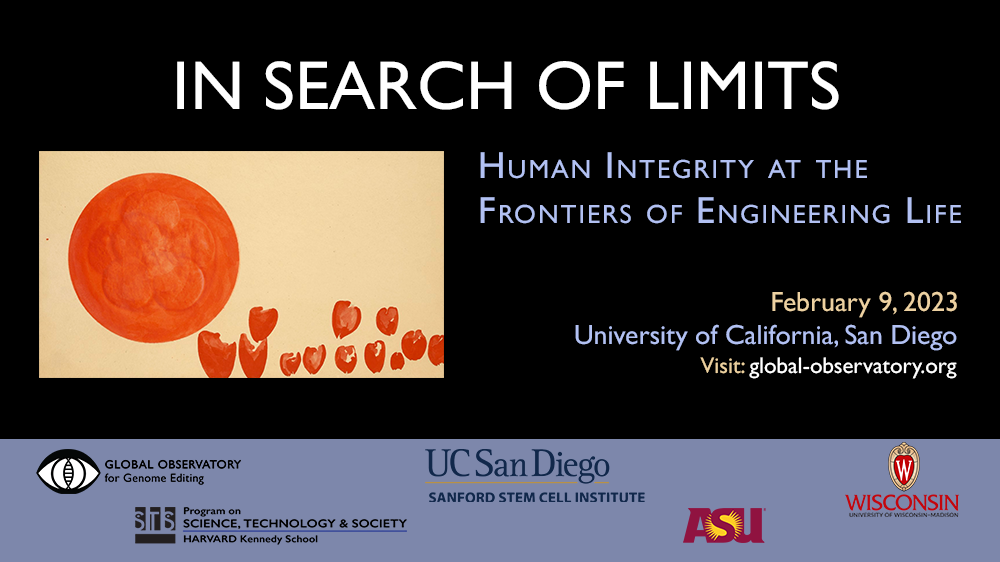 This workshop, the second in a series (the first took place in 2022), explored the narratives of promise, purpose, and perfectibility that animate frontiers developments in biotechnology. These narratives have circulated widely around technologies that intervene in human development in the name of doing nature better. Examples include genome-edited babies, stem cell-derived synthetic embryos, and human neuronal systems grown in vitro. Those leading these strides in bioengineering are often aware of a need to question and if possible, reaffirm the nature of and moral justification for limits on scientific research and intervention. Recent years have seen the emergence of a global patchwork of laws, policies, recommendations, proposals, conventions, and declarations that respond to these concerns by defining and delimiting the field of permissible research that intervenes in human development and reproduction. 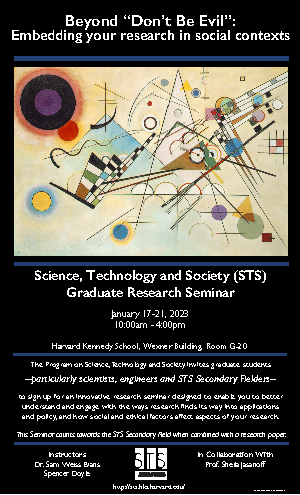 The STS Program invites graduate students--particularly engineers and STS Secondary Fielders--to sign up for an innovative research seminar designed to enable you to better understand and engage with the institutional channels through which research finds its way into applications and policy, and how social and ethical factors affect aspects of your research. This Seminar may count as a course for the purposes of the STS Secondary Field upon completion of an additional paper. No other course credit will be offered. 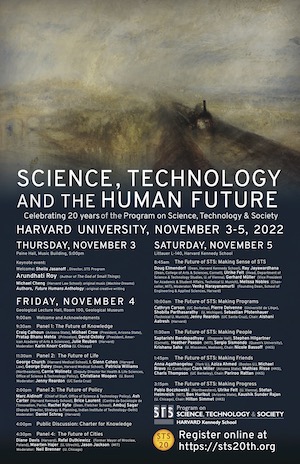 Humanity is at a moment where our strongest chance of flourishing likely involves a substantial restructuring of the ways we live, govern, and understand ourselves and the world. Over two and a half days, the Program on Science, Technology & Society at Harvard University invites you to engage in a series of conversations that open up the question of “where next?”, asking not only which pathways are desirable, but whose desires should be attended to. This event is a celebration of 20 years of the Program on Science, Technology & Society at the Harvard Kennedy School. 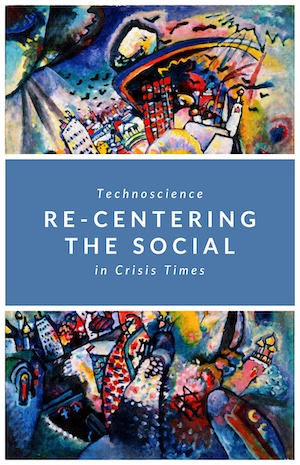 The Graduate Research in STS (GRiSTS) 2022 conference invites students from any discipline to discuss the relations of S&T with policy, politics and governance in modern societies. Through sharing their work, students from universities across the Northeast connect to a growing network of STS research and mentoring in areas of shared intellectual interest and practical concern. Fostering these connections will allow young researchers to better appreciate their own academic contributions and professional roles, as well as build inclusive, yet critical, understandings of S&T in global society. GRiSTS is institutionally supported by the Harvard University Center for the Environment and the Weatherhead Center for International Affairs. 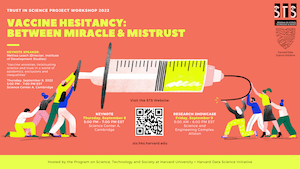 Join the Trust in Science Project for two days of conversation on vaccine hesitancy and its relationship to trust in science. Professor Melissa Leach will deliver a keynote lecture from 5-7pm on Thursday, September 8 at Science Center A. The program on Friday, September 9 will include panel discussions on Safeguarding Information Integrity, Communities and Silos, Trust in Science in Comparative Perspective, and Overcoming Hesitancy. These will be interspersed with methodological showcases by researchers from Harvard and beyond. Hosted by the Trust in Science Project, a collaboration between the STS Program and the Harvard Data Science Inititative. 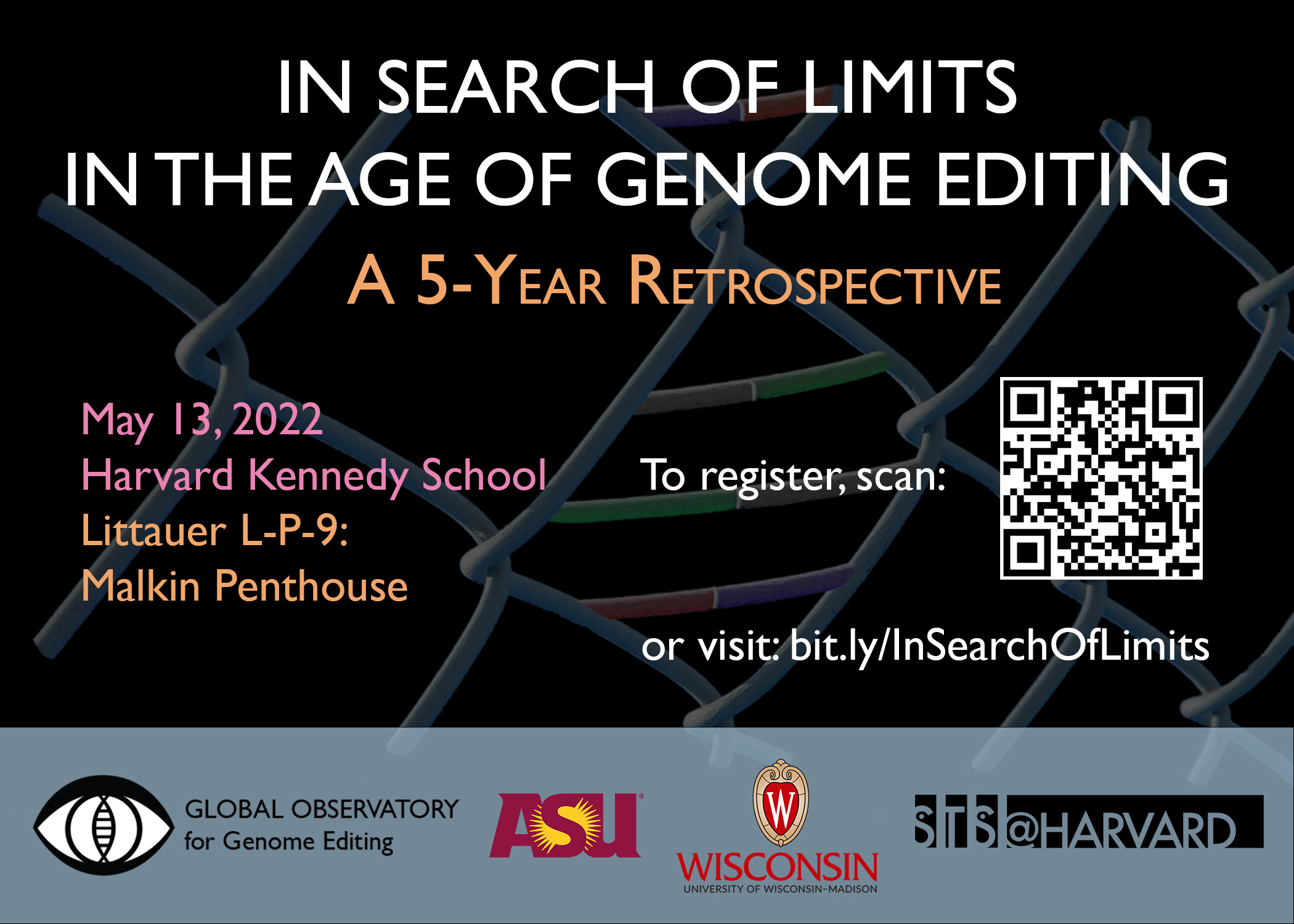 In the past five years, we have seen the emergence of a global patchwork of laws, policies, recommendations, proposals, conventions, and declarations that define and delimit the field of permissible genome editing research. This workshop aims to explore the concepts of limits that are reflected in these developments: limits to technological applications, to research, and to knowledge; limits on the scope of deliberation and extent of participation, on the range of moral questions that should be asked, and on the forms of reasoning, evidence, and expertise required to make informed and democratic decisions. We will build on the 2017 “Editorial Aspirations” conference at Harvard that provided a forum for discussing the future of human genome editing, a discussion that ultimately led to the formation of the Global Observatory. The succeeding five years have brought a proliferation of policy approaches intended to set bounds on gene editing research and applications, even as science and technology continue to forge ahead. Numerous international expert advisory bodies have taken a leading role in delimiting responsible from irresponsible research, with different framings and outcomes. Given the complexity of the ethical landscape and the variety of mechanisms at work in setting limits, we aim to think systematically about how limits to human genome editing are being defined and to identify salient issues and positions that may be receiving less attention than deserved. In short, the workshop hopes to characterize how today’s discussion of limits may itself be limiting. This workshop therefore seeks to further the Global Observatory’s mission of broadening the present scope of deliberation, centering not just on the limits themselves, but also on the processes that institutionalize them, the voices that contribute to them, the human values that animate them, and the forces that may push back against them. This interdisciplinary workshop is convened jointly by the Program on Science, Technology and Society (Sheila Jasanoff) and the Carr Center for Human Rights Policy (Mathias Risse) at the Harvard Kennedy School, as well as the Oxford Internet Institute (Philip Howard). The theme of the workshop sits at the intersection of various concerns: the massive spread of misinformation, disinformation, and fake news – as well as the characterizations of true but inconvenient reporting as fake. Workshop speakers will also explore the loss of trust in advice given and positions taken by scientific, economic, or political elites, against the backdrop of the decline in journalism as a “fourth estate.” Additionally, speakers will delve into how shared commitments to democratic governance has become less important than the victory of one’s own side in an election campaign and other matters. Registration is required, the agenda will be released soon. Carr Center for Human Rights Policy Harvard Science, Technology, and Society Program 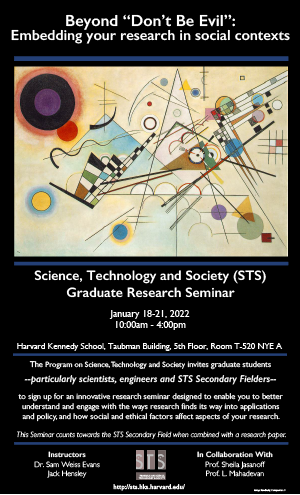 The STS Program invites graduate students--particularly engineers and STS Secondary Fielders--to sign up for an innovative research seminar designed to enable you to better understand and engage with the institutional channels through which research finds its way into applications and policy, and how social and ethical factors affect aspects of your research. This Seminar may count as a course for the purposes of the STS Secondary Field upon completion of an additional paper. No other course credit will be offered. This Research Seminar is sponsored by the STS Program's Schmidt Futures grant on "Ethics in the Lab" 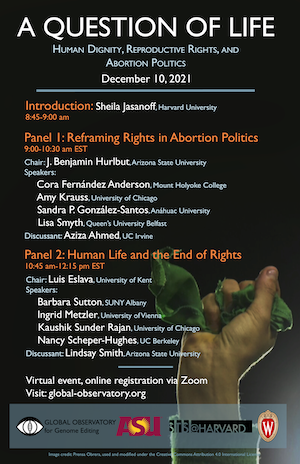 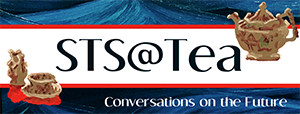 The Program on Science, Technology & Society at the Harvard Kennedy School is pleased to announce the next event in its new space for intellectual engagement with emerging futures: STS@Tea. Here we host occasional conversations exploring the place of STS thinking as the virtual world grapples with urgent issues relating to science, technology, environment, expertise, and democracy. 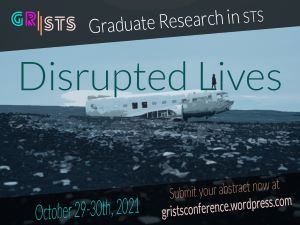 The extraordinary disruptions of the past year underscore the sweeping connections between science and technology (S&T) and the movements of global social life. Known through science, the virus infiltrated and modified the infrastructures that sustain our health, our economies, our modes of governance, and our visions of post-pandemic futures. Public health science suddenly arrested the flows of global economic activity. National governments selectively legitimated forms of expertise that just as selectively shut down arenas of public interaction and social congregation. Open demonstrations against injustice, borrowing the technologies of mass protest, erupted after months of expert-ordered confinement. In each case S&T played as much of a leading role in creating and framing problems as in solving them. Yet the discourses of recovery are studded with calls for scientific and technological innovation to recover the promise of sustainable life on a shared earth. In a present full of unprecedented uncertainties for biological and social life, we are inviting work that reflects on the role of S&T in restoring healthier bodies, more sustainable economies, and more inclusive politics. This conference calls for (up to 350 word) abstracts from graduate students in STS and neighboring fields representing work on a range of contemporary and historical domains: AI, biotechnology, climate science, digitalization, economics, IT, public health, medicine, security, urban planning and more. Papers should connect to the theme of Disrupted Lives, exploring the role of S&T as instruments of governance and their implications for shaping the politics and policies of recovery. We welcome submissions that problematize the role of S&T in linking or de-linking pre-pandemic modes of life: remaking ties between space and work, school or commerce; enabling new forms of social awareness or amplifying injustice through mass surveillance and intrusive public health regimes; and using advances in data science and modeling to reveal inequality or justify draconian measures targeting behaviors seen as unsafe or risk enhancing. We hope to critically examine how knowledge and innovation constitute themselves as infrastructures of recovery as much as they may also serve as forces of future disruption. Please submit abstracts by June 1. Full event details are here. 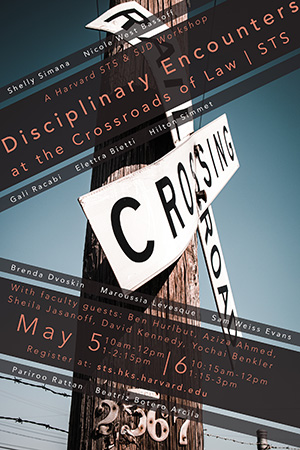 This unique, interdisciplinary workshop brings together early-career scholars from law and science, technology, and society (STS) to present their research projects and receive feedback from senior faculty in both disciplines. The projects address how the intersections of science and technology with law influence and are influenced by society, politics, and culture. We welcome all participants who are interested in contemporary issues relating to science, technology, law, political power, markets, expertise, and democracy. This workshop is organized jointly by the STS Program and the SJD students 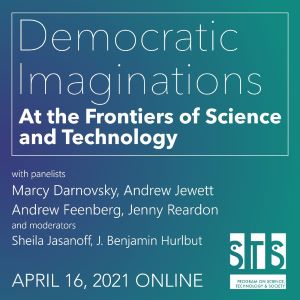 Join us for “Democratic Imaginations: At the Frontiers of Science and Technology,” with panelists Andrew Jewett, Marcy Darnovsky, Andrew Feenberg, and Jenny Reardon, moderated by Sheila Jasanoff and J. Benjamin Hurlbut. Sponsored by the Global Observatory for Genome Editing. 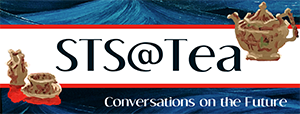 The Program on Science, Technology & Society at the Harvard Kennedy School is pleased to announce the third event in its new space for intellectual engagement with emerging futures: STS@Tea. Here we host occasional conversations exploring the place of STS thinking as the world grapples with urgent issues relating to science, technology, environment, expertise, and democracy. This event is co-hosted by the Harvard-Cornell NSF Comparative Covid Response Project. Co-sponsored by the Comparative COVID Research Project (CompCoRe) 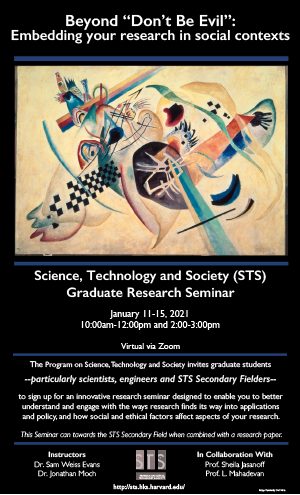 The STS Program invites graduate students--particularly engineers and STS Secondary Fielders--to sign up for an innovative research seminar designed to enable you to better understand and engage with the institutional channels through which research finds its way into applications and policy, and how social and ethical factors affect aspects of your research. This Seminar may count as a course for the purposes of the STS Secondary Field upon completion of an additional paper. No other course credit will be offered. This Research Seminar is sponsored by the STS Program's Schmidt Futures grant on "Ethics in the Lab" With generous support from the Robert Bosch Academy in Berlin, this series of meetings launched the work of the Global Observatory for Genome Editing. The purpose was to seek input and advice from an international group of distinguished scholars, scientists, legal experts, policy practitioners, and civil society representatives who will inform the initial agenda for the Global Observatory for Genome Editing. 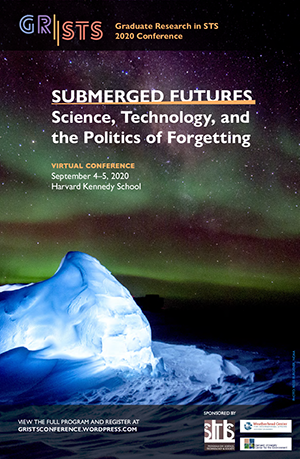 The first annual GRiSTS Conference has been rescheduled to take place virtually on September 4-5, 2020. This Northeast regional graduate conference is meant to be an opportunity for students of Science, Technology, and Society (STS) from across disciplines and universities to meet and develop their projects together and to benefit from working closely with senior faculty in the field. The GRiSTS virtual program provides opportunities for the Northeast regional STS community to share and advance our work, augment our professional training, and sharpen our capacity for thinking more critically about submerged futures in global and local societies. 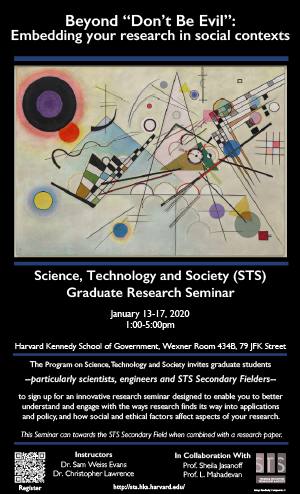 The STS Program invites graduate students--particularly engineers and STS Secondary Fielders--to sign up for an innovative research seminar designed to enable you to better understand and engage with the institutional channels through which research finds its way into applications and policy, and how social and ethical factors affect aspects of your research. This Seminar may count as a course for the purposes of the STS Secondary Field upon completion of an additional paper. No other course credit will be offered. This Research Seminar is sponsored by the STS Program's Schmidt Futures grant on "Ethics in the Lab" 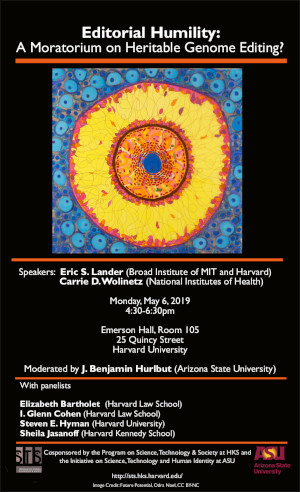 Co-sponsored by the Initiative on Science, Technology and Human Identity at Arizona State University 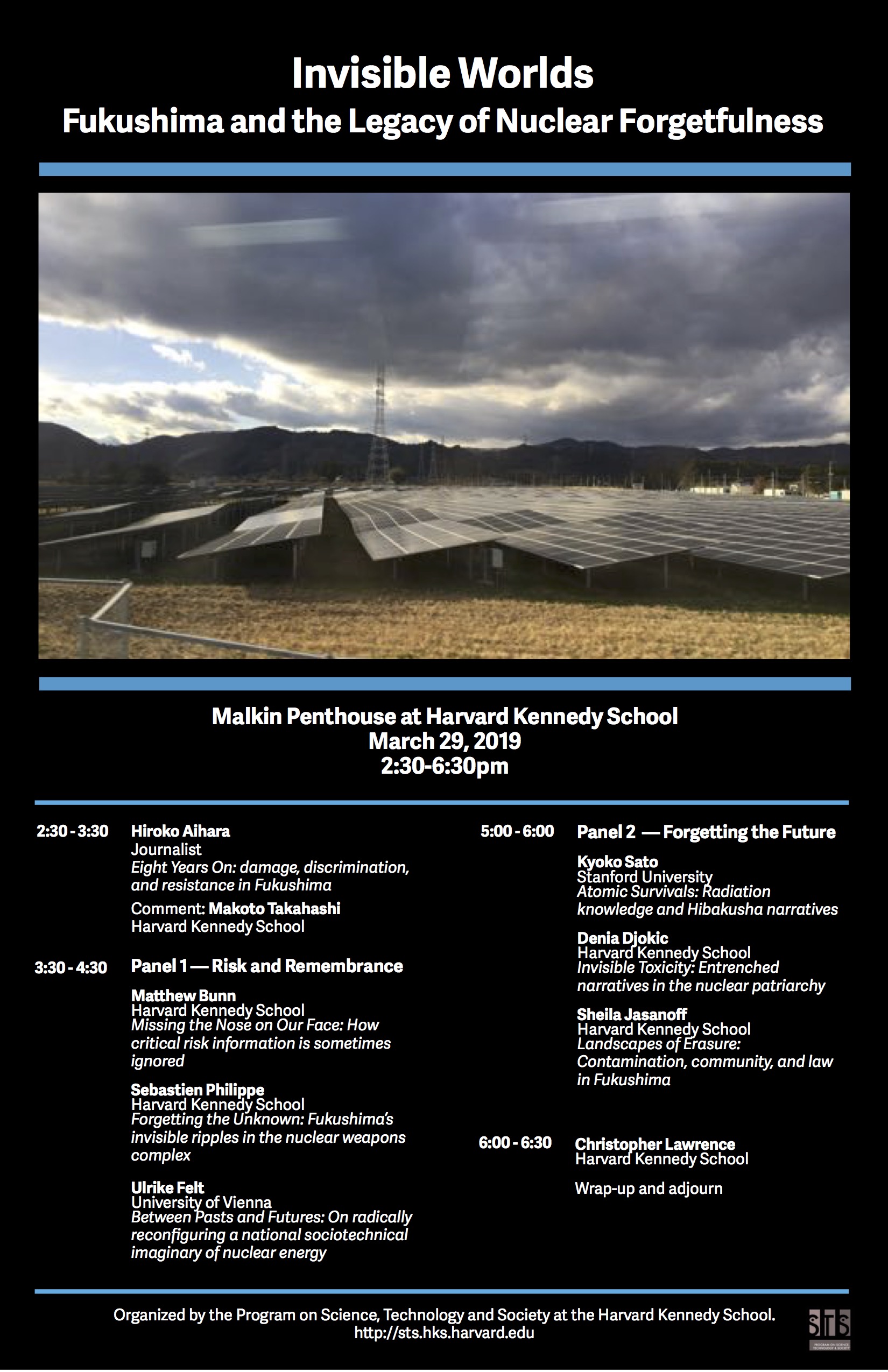 The 2011 Fukushima disaster brought to light the complex ways in which nations and peoples have dealt with the power of the atom since the attacks on Hiroshima and Nagasaki. This interdisciplinary workshop, enabled by a grant from the National Science Foundation, explores how dimensions of risk and responsibility appear and disappear in narratives of nuclearity. Speakers will present perspectives from journalism, sociology, STS, law, public policy, and nuclear engineering. 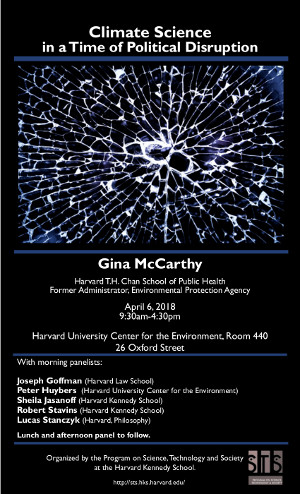 The Program on Science, Technology and Society at Harvard is hosting a workshop to reflect on the relations between climate science and its broader academic and socio-political contexts in the United States. Our aim is to explore the politics, norms and visions that influence the uptake of scientific facts, and to provide a basis for revisiting the challenges as well as the opportunities for climate science in an era of populism and alternative fact-making. Pulling together academics from different disciplinary backgrounds, the workshop aims to encourage an inclusive and critical discussion on the outlook for climate science in the current political environment. The workshop will begin with a keynote talk by Gina McCarthy and a panel discussion, followed after lunch by an open conversation among junior scholars from different disciplines at Harvard and MIT. The morning panel will initiate an exchange on current challenges in climate science and politics. The afternoon panel will reflect on how the contested nature of climate science affects individual researchers in fields as diverse as urban planning, geo-engineering, political psychology, and policy implementation. Co-sponsored by the Harvard University Center for Environment 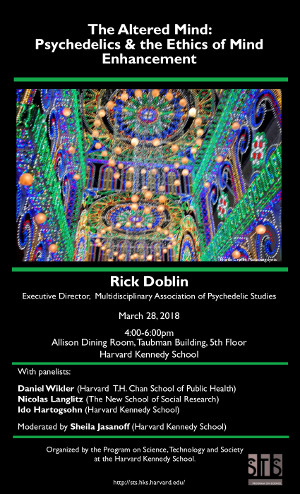 Psychedelics are again in the headlines, with new research pointing to their potential benefits for treating PTSD, depression, addiction and other psychiatric conditions. What is at stake in the so called ‘renaissance’ of psychedelic research socially, culturally, politically, and ethically? What sociocultural trends and forces enabled this renaissance and how does the mainstreaming of such research intersect with the countercultural values long associated with psychedelic substances? What broad promises do these substances hold for society and what dangers should we be aware of? In particular, what ethical challenges are raised by psychochemical interventions into self and society, and how should these be addressed in view of tensions between the ongoing war on drugs and the simultaneous and growing acceptance of technologies aimed at cognitive and emotional enhancement? Watch the video here. 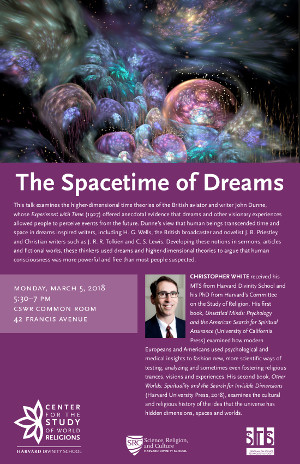 This talk examines the higher-dimensional time theories of the British aviator and writer John Dunne, whose widely-read Experiment with Time (1927) offered anecdotal evidence that dreams and other visionary experiences allowed people to perceive events from the future. Dunne had several dramatic precognitive dreams and these dreams, together with ideas cobbled together from Einstein and other scientists, enabled Dunne to develop a theory of time in which human consciousness contained multiple “observers” that perceived reality from different dimensions. Dunne’s view that human beings transcended time and space in dreams reverberated throughout popular culture in Europe and America, inspiring writers seeking ways of transcending the terrors of the world wars or triumphing over suffering and death, including H.G. Wells, the British broadcaster and novelist J.B. Priestley, and Christian writers such as J.R.R. Tolkien and C.S. Lewis. Developing these notions in sermons, articles and fictional works, these thinkers used dreams and higher-dimensional theories to argue that human consciousness was more powerful and free than most people suspected.
Co-sponsored by the Center for the Study of World Religions; Science, Religion, and Culture Program (HDS); Program on Science, Technology & Society (HKS) 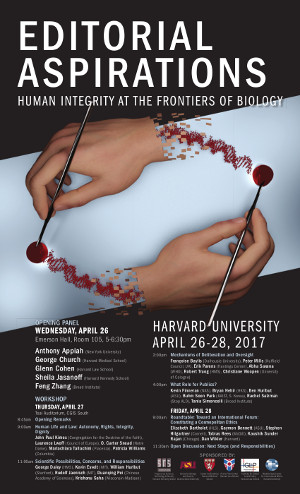 Co-sponsored by the Center for Biology and Society, Arizona State University with support from Templeton Religion Trust; the Petrie-Flom Center for Health Law Policy, Biotechnology, and Bioethics at Harvard Law School and the Center for Bioethics at Harvard Medical School, with support from the Oswald DeN. Cammann Fund; the Institute for Global Law and Policy at Harvard Law School; the Weatherhead Center for International Affairs; and The Future Society. 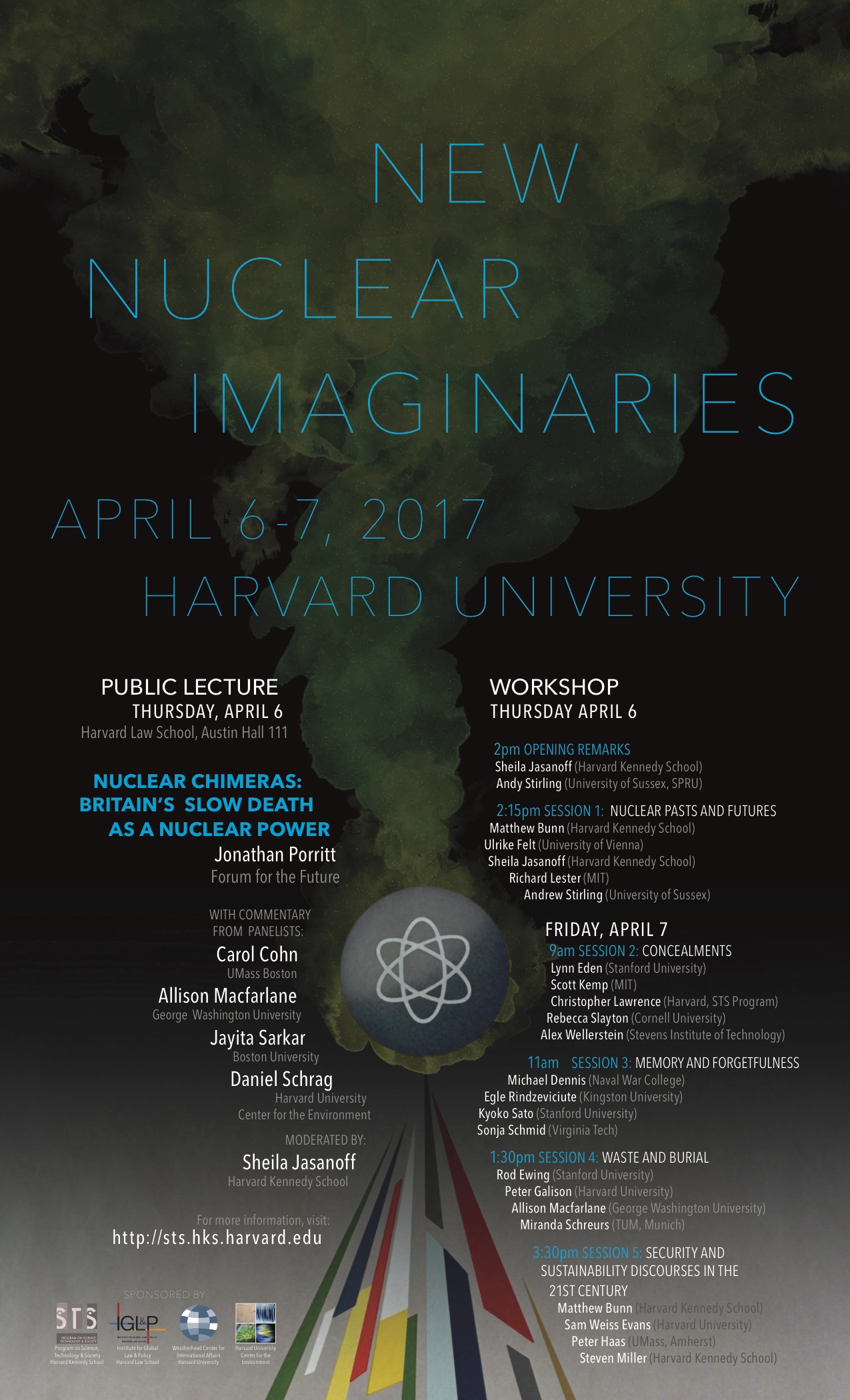 Nuclear worlds today are at a crossroads. As infrastructures age, stockpiles and wastes accumulate, and technologies, materials and interpretations proliferate, we face questions about how to build a just and responsible future out of the ambiguous legacies we have inherited. The future presents challenges of imagination as much as of technology and policy. Speaker biographies located here. Video available here. Co-sponsored by the Harvard University Center for the Environment, Institute for Global Law and Policy at Harvard Law School, and the Weatherhead Center for International Affairs There is no value-free science. There is no algorithm that writes itself.” - President Drew Faust, Harvard University The potential of information technology and artificial intelligence has been much-discussed by policymakers. The ability to access and analyze data to inform government decisions is unprecedented and represents an exciting opportunity to improve the impact of existing policies and identify new opportunities for public action and collaboration. Concurrently, discussions of bias and discrimination have taken on a renewed sense of urgency, from the classrooms of Harvard Yard to the presidential election. Yet despite the importance and timeliness of these two topics, a discussion of how bias will interact with emerging technologies has been slow to form. Machine learning tools are often positioned as fair and objective. However, algorithms are often based on both historical precedent, frequently reflecting the majority. As technology becomes increasingly complex and ubiquitous, this bias becomes further obscured while continuing to scale. The algorithms are neither accessible nor transparent, and as a result, are ripe with unintended consequences. This can create a destructive feedback loop that support a narrow interpretation of identity. The event will be live-streamed and recorded. You can watch here. Presented by the Institute of Politics, The Program on Science, Technology and Society, The Future Society at HKS "AI Initiative" and the Malcolm Wiener Center for Social Policy. In 1954 French philosopher of technology Jacques Ellul proclaimed that technology was “l'enjeu du siècle” (‘the stake of the century’). The diagnosis still holds true, but we might agree that there is even more at stake in regard to technology here in the beginning of the 21th century. The ubiquitous presence of technology and innovation in society and human life reflects an increasing urge to control, plan and optimize the future. When Apple launched the third version of their cherished iPhone, the telling marketing slogan went “Solving Life’s Dilemmas One App at a Time”; an apt slogan indeed, not only applying to the iPhone, but also to the prevalent attitude of the present as such. Accordingly, if we wish to understand today’s society and human life, we need to genuinely think about technology, not as a universal answer, solving present and future problems, but as a question in itself. Needless to say, life’s dilemmas didn’t disappear with the iPhone 3, nor will they with the upcoming iPhone 8, and nor will they with any other future technologies, which means that there is still plenty of room for questioning and thinking amidst all the zealous solvers and ardent fixers. For many years the fields of Philosophy of Technology and Science, Technology and Society (STS) have persistently questioned technology. When the tech-industry and politicians have answered with technology, Philosophy of Technology and STS have responded with questions and studies of the complex ways, by which humans and societies interpret, imagine and relate to technology. At this event, Sheila Jasanoff and Alfred Nordmann will discuss the differences and similarities between Philosophy of Technology and STS as well as how the two fields might compliment each other. The discussion will be focused around Nordmann’s concept “hermeneutics of the future” and Jasanoff ‘s concept of “sociotechnical imaginaries. ” 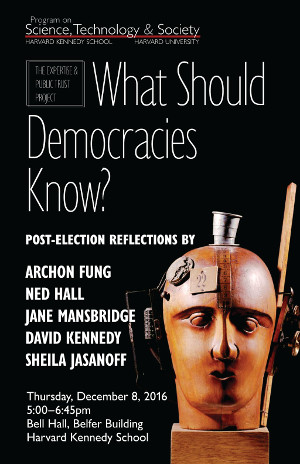 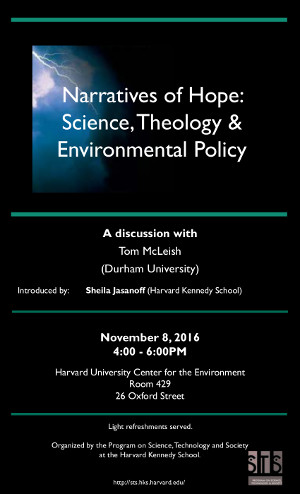 Recent analyses of public debates on nanotechnology, GMOs and other environmental impasses have unearthed powerful, yet submerged, driving ‘narratives of despair. Their religious resonances (e.g. ‘Pandora’s Box’, ‘Sacred Nature’) suggest a search for countering ‘narratives of hope’ within theological sources. A close reading of the ancient Book of Job, alert to resonances with natural philosophy, recasts ‘science’ as a deeply human, social and ancient. Job has spawned a rich literature of environmental commentary; we attempt to shape a deeper story of purpose in engaging nature, through classical, patristic, medieval, and early modern sources into a framework for late modern technologies. The resulting reconciliatory ‘Theology of Science’ meets the narratives of despair head-on. It suggests a transformation of the way political discussions of 'troubled technologies' are framed, and pathway to mobilising religious communities in support of a healthier public debate 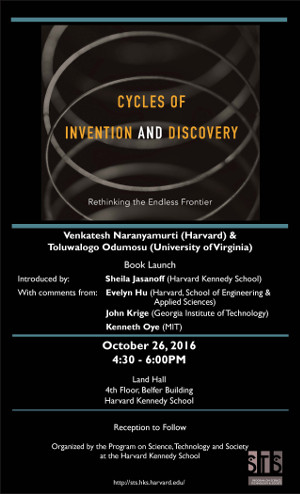 Book Description: Cycles of Invention and Discovery offers an in-depth look at the real-world practice of science and engineering. It shows how the standard categories of “basic” and “applied” have become a hindrance to the organization of the U.S. science and technology enterprise. Tracing the history of these problematic categories, Venkatesh Narayanamurti and Toluwalogo Odumosu document how historical views of policy makers and scientists have led to the construction of science as a pure ideal on the one hand and of engineering as a practical (and inherently less prestigious) activity on the other. Even today, this erroneous but still widespread distinction forces these two endeavors into separate silos, misdirects billions of dollars, and thwarts progress in science and engineering research. The authors contrast this outmoded perspective with the lived experiences of researchers at major research laboratories. Using such Nobel Prize–winning examples as magnetic resonance imaging, the transistor, and the laser, they explore the daily micro-practices of research, showing how distinctions between the search for knowledge and creative problem solving break down when one pays attention to the ways in which pathbreaking research actually happens. By studying key contemporary research institutions, the authors highlight the importance of integrated research practices, contrasting these with models of research in the classic but still-influential report Science the Endless Frontier. Narayanamurti and Odumosu’s new model of the research ecosystem underscores that discovery and invention are often two sides of the same coin that moves innovation forward. 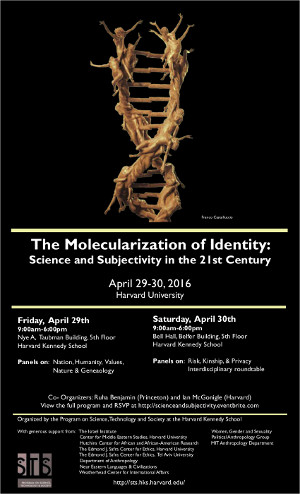 Recent advances in biological and computational technologies are changing the way we imagine race, gender, kinship, citizenship, and disease risk. Existing taxonomies may be displaced or reconfigured, impacting the ways in which people are governed, how lives are lived, how groups are known, and how power is exercised. Drawing upon the tools and expertise from multiple disciplines and geographical regions, and with specific attention to the material and lived dimensions of these developments, this symposium interrogates the complex ways in which the molecular realm is an emerging site for constituting human identities in the 21st century. With generous support from: The Israel Institute; Harvard University’s Center for Middle Eastern Studies, Hutchins Center for African & African American Research, The Edmond J. Safra Center for Ethics, Department of Anthropology, Weatherhead Center for International Affairs, Committee on Degrees in Studies of Women, Gender, and Sexuality, Political Anthropology Group, Near Eastern Languages and Civilizations; The Edmond J. Safra Center for Ethics at Tel Aviv University; and MIT Anthropology. 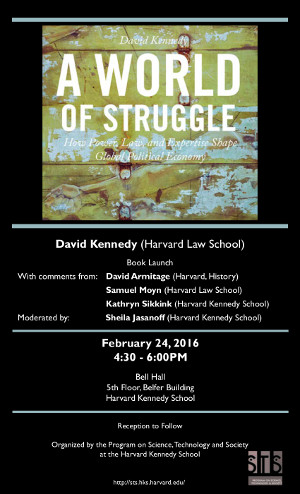 Book Description: A World of Struggle reveals the role of expert knowledge in our political and economic life. As politicians, citizens, and experts engage one another on a technocratic terrain of irresolvable argument and uncertain knowledge, a world of astonishing inequality and injustice is born. In this provocative book, David Kennedy draws on his experience working with international lawyers, human rights advocates, policy professionals, economic development specialists, military lawyers, and humanitarian strategists to provide a unique insider's perspective on the complexities of global governance. He describes the conflicts, unexamined assumptions, and assertions of power and entitlement that lie at the center of expert rule. Kennedy explores the history of intellectual innovation by which experts developed a sophisticated legal vocabulary for global management strangely detached from its distributive consequences. At the center of expert rule is struggle: myriad everyday disputes in which expertise drifts free of its moorings in analytic rigor and observable fact. He proposes tools to model and contest expert work and concludes with an in-depth examination of modern law in warfare as an example of sophisticated expertise in action. Charting a major new direction in global governance at a moment when the international order is ready for change, this critically important book explains how we can harness expert knowledge to remake an unjust world. This event is a book launch followed by a reception. This event is a book launch followed by a reception 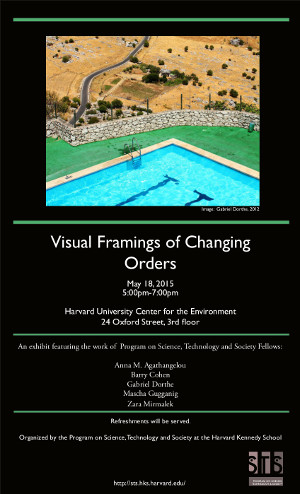 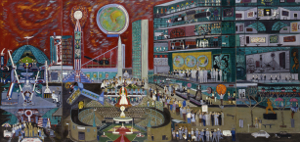 Organized by Paulo Fonseca, Zara Mirmalek, Zoe Nyssa, Aleksandar Rankovic and Matthew Sample Science and engineering often set aside some problems as uniquely theirs, from conserving biodiversity to addressing physical disability. At the same time, they tend to define the public as the recipient of their promises of progress. As science and its ramifications grow to influence virtually all the aspects of human lives, the question of scientific accountability towards the public becomes a central issue, increasingly recognized by scientists and engineers themselves. However, as we reveal the complex network-like character of science and engineering, their reciprocal dependence on social and political realities, responsibility seems to have no grip. As agency becomes distributed throughout socio-technical networks – individual scientists, universities, participants in experiments, public agencies, the private sector etc. – the challenge is to understand how accountability is or ought to be distributed. In this workshop, we will discuss new approaches, distributed through socio-technical networks, of scientific accountability towards the public(s). Based on five dialogues between scientists and STS fellows, the workshop proposes to explore the following questions in different settings of science, technology and society: - How is the public defined by different fields of science and technology? - What is the role of the public in framing and addressing the problems that science and technology want to tackle? - How are science and technology accountable to "their publics", and through which mechanisms is this accountability assured? - Are there accountability issues that are unique to particular technoscientific fields and "their publics"? This talk aims to provide an empirical take on what the Anthropocene means for the people who are first and most affected by environmental changes. If the Anthropocene represents the period in history when humans are the main agents of change on Earth, it also represents, for many, a time when the transformations of the Earth are main agents of change in their daily lives. Drawing from case-studies in small island states, in New Orleans after hurricane Katrina or in Japan after the Fukushima disaster, this seminar seeks to highlight how Western normative perceptions of agency, vulnerability and responsibility continues to reproduce the patterns of inequality that led to the Anthropocene. 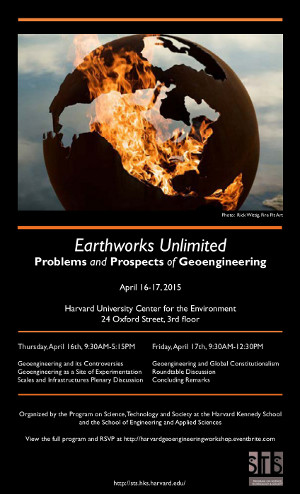 Workshop Objectives Geoengineering, a suite of technologies aimed at mitigating the potentially catastrophic consequences of climate change through deliberate human intervention, has attracted wide attention and given rise to sharply polarized debate. Proponents argue that prudence calls for these technologies to be rapidly developed, through appropriate forms of research and experimentation; opponents point to the troublesome ethical and political implications of imposing uncertain solutions on a culturally heterogeneous and economically and technologically unequal planet. Despite their global implications, geoengineering debates have remained sequestered in relatively few European and North American centers, and serious cross-disciplinary conversation is still in its infancy. This workshop brings together scholars from different regions and from fields including science and technology studies, political science, law and engineering to address the following major questions:
Co-sponsored by the Program on Science, Technology and Society and the School of Engineering and Applied Sciences 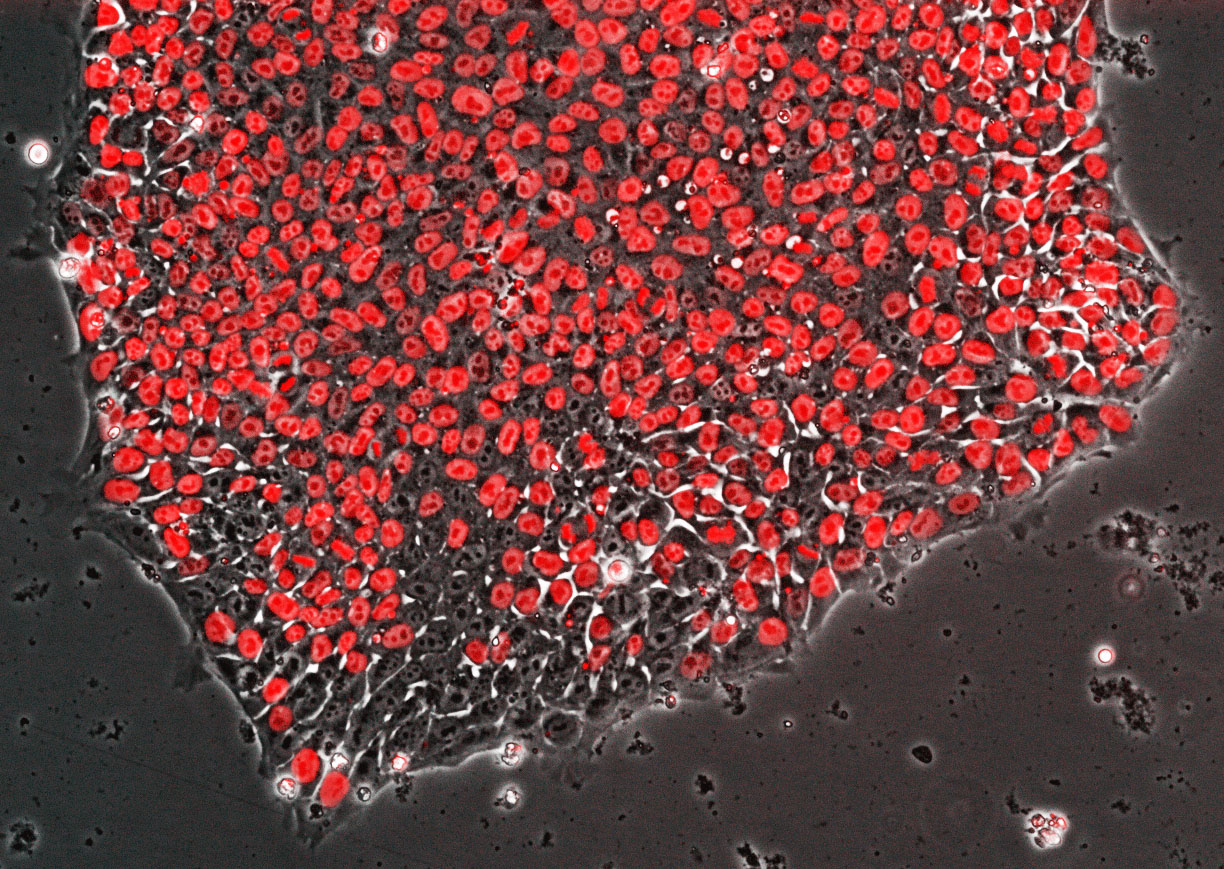 Developments in the biosciences in the last half-century have posed novel challenges for governance. These have emerged as biological knowledge becomes more central to matters of safety, health and welfare; as biology is called upon to address moral uncertainty around ideas of human nature, identity and dignity; and as biology plays an increasingly central role in the technological alteration of human bodies, non-human entities and environments. Governance challenges have unfolded across several domains: internally within the research enterprise itself; externally where the biosciences are called upon to address social problems; and in moments of ethical doubt, for example, when institutions of governance are called upon to distinguish bioengineered artifacts from entities with human dignity. Scholarship in Science and Technology Studies (STS) has developed varied approaches and techniques for examining such phenomena, and drawing theoretically grounded generalizations from site-specific studies. This summer school will introduce participants to major approaches, and explore new research frontiers and possible directions for synthesis and innovation. It will emphasize engagement with theoretical issues in STS, with particular attention to moments of friction between science and institutions of democratic governance. 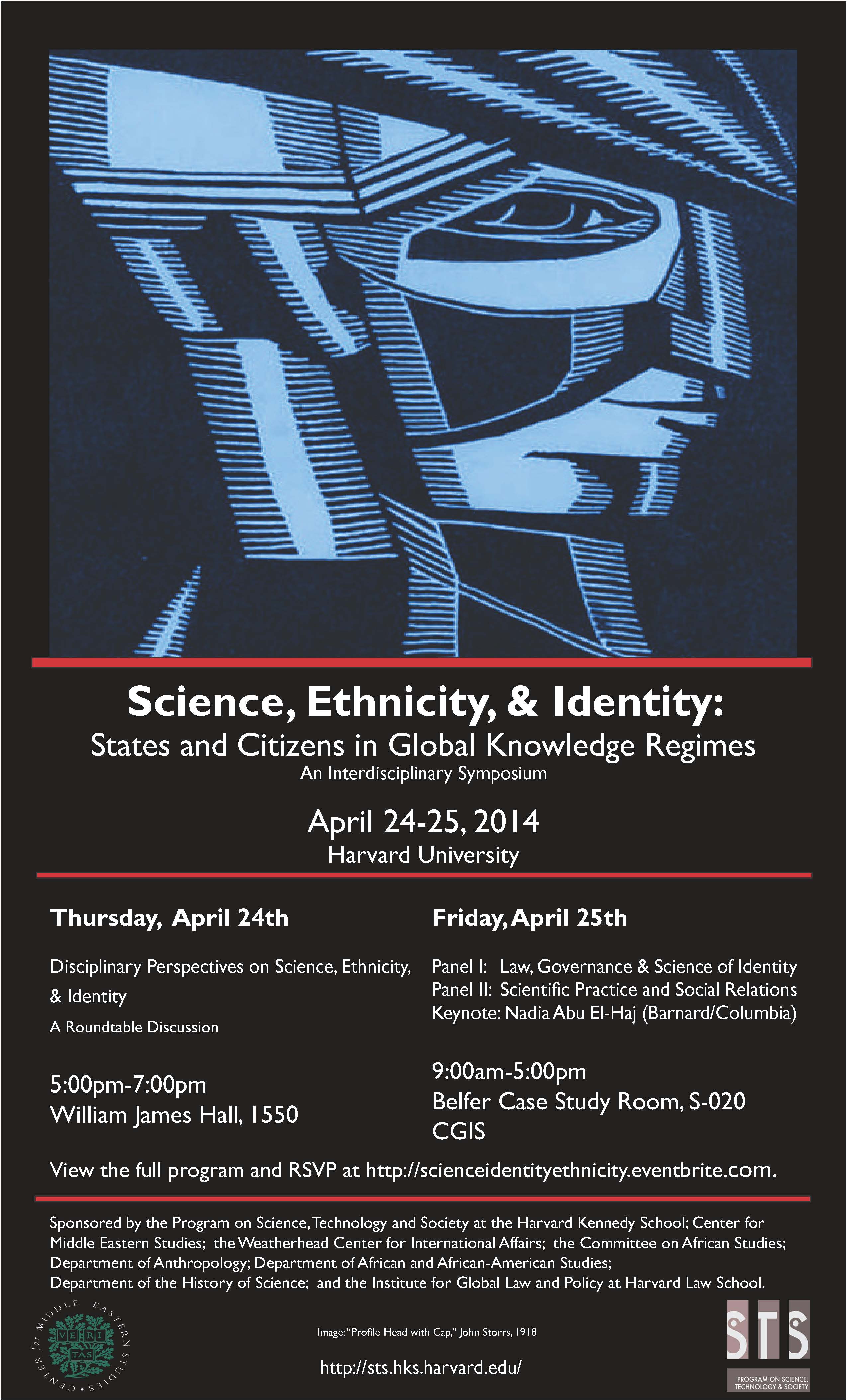 With recent advances in the biosciences, such as second-generation genomic sequencing, advanced techniques in assisted conception, and the prediction of inheritable diseases, many aspects of individual identities— from ethnicity to genealogy to disease susceptibility— have been problematized. DNA is now being “read” by scientists to articulate a molecular basis for many historical and social phenomena, such as individuals’ membership in ethnic or national groups, as well as renewing older concerns about social control of populations through genetics. But what do these new kinds of genetic readings do for states and their citizens? To what extent have the genetic sciences expanded or circumscribed the ways of authorizing ethnic and national belonging? How has research in population genetics and human biogeography affected legal and political rights to citizenship, and territorial disputes? Are biological sciences, technologies, and society entangled to the point of being co-produced, and if so in what ways? This symposium tackles these questions from a global perspective, with the hope of fostering dialogue across disciplinary divides and geographical regions. Program on Science, Technology and Society at the Kennedy School of Government; Weatherhead Center for International Affairs; Committee on African Studies; Center for Middle Eastern Studies; Department of Anthropology; Department of African and African-American Studies; Department of the History of Science Traditional understandings of conservative political thought emphasize its diverse premises and divergent theoretical commitments (e.g., libertarian versus traditionalist versus neoconservative), which, from the vantage point of ideas, render the movement’s strength and longevity a singular accomplishment and puzzle. In recent work, Kersch has sought to demonstrate the ways in which modern American conservatism’s cultivation of a core set of symbolic commitments (e.g., the U.S. Constitution) and historical narratives (e.g., about the meanings of the Founding, the Civil War, and the Progressive Era) bridge these divides, unifying and motivating the movement in ways missed by political theory’s standard analytic frames. In this talk, he considers the possibility that critiques of, and stories about, science and experts and their role in the modern regulatory/administrative/social welfare state – what others have variously called the “statutory,” “legislative,” or “policy” state – have been a critical component of this set of unifying narratives and symbols. He will survey contemporary conservative thinking from diverse theoretical starting points -- Neo-liberal (including Public Choice economics and Hayek), Traditionalist (including Evangelical Christian, the Catholic Right, and Straussian), and Neoconservative – about the nature and purpose of law, implicating fundamental questions of the role of science and expertise within U.S. constitutional government. Co-sponsored by the Program on Science, Technology and Society and the Institute for Global Law and Policy at Harvard Law School 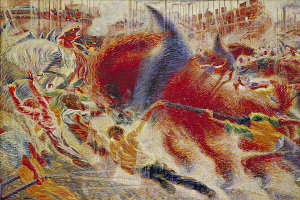 This workshop draws together several strands of current research on sociotechnical imaginaries in the STS Program at Harvard. Through multiple engagements with new, emerging, and reemerging technologies, the workshop explores the material, discursive, and political resources with which societies create shared visions of what they want, or do not want, from advances in technology. Of primary interest throughout is the connection of remembered technoscientific pasts to the threats and promises of imagined futures. 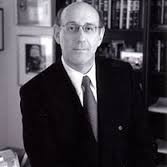 Kenneth R Feinberg will offer personal reflections on how he became the expert in unique catastrophes and the principled ways in which he has learned to respond. He will tackle the difficulty issue of achieving a sense of justice in the aftermath of tragedy through the administration of victims' funds. Co-sponsored by the Program on Science, Technology and Society and the Institute on Global Law and Policy. 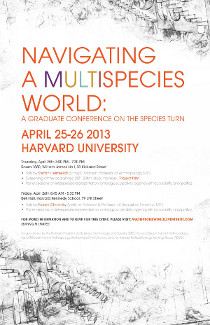 This conference concerns the recent innovations and insights for the study of ontologies and socialities engendered through the “species turn” -- that is, the intellectual turn to, and reflection upon, life beyond the human species in the arts, humanities, and social sciences. Emerging over the last few decades of the 20th century, the species turn developed (1) from a diverse array of analytical and theoretical formations concerned with aspects of the nonhuman (animate and inanimate), including actor-network theory, affect theory, animal studies, assemblage theory, the new materialism, and systems theory; and (2) in productive tension with a parallel intellectual development -- posthumanism -- articulated through such innovative theoretical work as Katherine Hayles’ How We Became Posthuman and Cary Wolfe’s What Is Posthumanism? While all approaches hold their own particular aims, objects, and methodologies, they urge us to consider that we, humans, are not alone. That is, we live in a world populated by and constituted through life forms and forms of life beyond the human. And as such, we must critically reconsider who “we” are in terms that challenge the limitations and dangers of anthropocentrism. Watch the keynotes here and here. Co-sponsored by the Harvard Program on Science, Technology, and Society (STS), the Harvard Department of Anthropology, the MIT Department of Anthropology, the Harvard Political Ecology Working Group (PEWG), and the Harvard Divinity School. 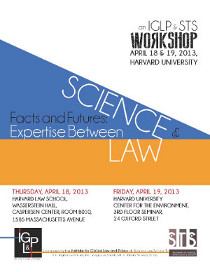 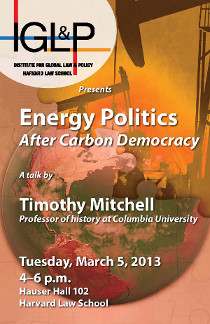 Professor Mitchell will lead a discussion on the themes raised in his recent book Carbon Democracy. He will share his thoughts as they have developed after completing that book and will reflect on the forms of politics that may arise in tandem with future energy transitions. Co-sponsored by the Institute for Global Law and Policy 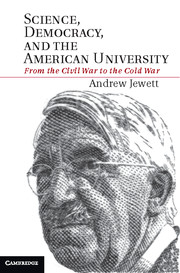 Book discussion followed by a reception. Co-sponsored by the Program on Science, Technology and Society and the Charles Warren Center for Studies in American History A symposium with John Carson (Michigan) and Baruch Fishhoff (Carnegie Mellon); comments from Elizabeth Lunbeck (Vanderbilt), Andrew Jewett (Harvard), Natasha Schüll (MIT), and Jennifer Lerner (Harvard). Co-sponsored with the Charles Warren Center for Studies in American History at Harvard. 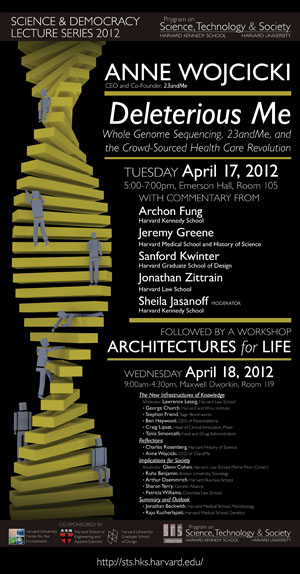 Recent developments in genomic and communication technologies are prompting shifts in the social, institutional and ethical architectures of biomedicine. Examples include direct-to-consumer genetic testing and crowd-sourced, “citizen-science” epidemiological research using smartphones and the web. These new architectures promise a gold rush of information and biospecimens that may provide a foundation for a more precise, personalized, and targeted medicine. They are also attracting new actors and new modes of participation that have the potential to enhance but also to destabilize established patterns of ethical, legal, and social responsibilities in biomedicine. How will these changing patterns of research and discovery affect citizens, consumers, donors, patients, physicians, researchers, and companies? This event, combining a public lecture and one-day workshop, explores these questions with a group of leaders spanning the biomedical sciences and engineering, social sciences, humanities, and industry. Co-sponsored by the Harvard University Center for the Environment, Harvard School of Engineering and Applied Sciences, and the Harvard University Graduate School of Design. :: www.architectures4life.com 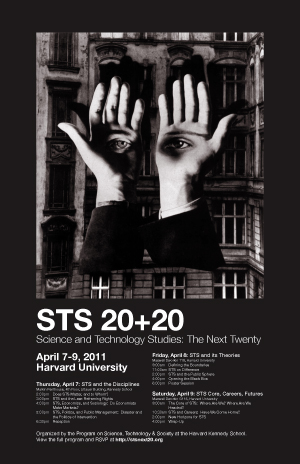 This conference marks twenty years of development in Science and Technology Studies since substantial infusions of public funds increased the visibility and impact of the field. See the conference website for more details.
Sponsored by the Program on Science, Technology and Society at the Harvard Kennedy School. 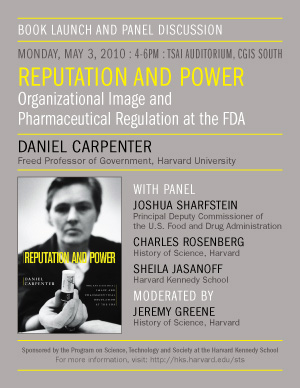 The U.S. Food and Drug Administration is the most powerful regulatory agency in the world. How did the FDA become so influential? And how exactly does it wield its extraordinary power? Reputation and Power traces the history of FDA regulation of pharmaceuticals, revealing how the agency's organizational reputation has been the primary source of its power, yet also one of its ultimate constraints. Daniel Carpenter describes how the FDA cultivated a reputation for competence and vigilance throughout the last century, and how this organizational image has enabled the agency to regulate an industry as powerful as American pharmaceuticals while resisting efforts to curb its own authority. Carpenter explains how the FDA's reputation and power have played out among committees in Congress, and with drug companies, advocacy groups, the media, research hospitals and universities, and governments in Europe and India. He shows how FDA regulatory power has influenced the way that business, medicine, and science are conducted in the United States and worldwide. Along the way, Carpenter offers new insights into the therapeutic revolution of the 1940s and 1950s; the 1980s AIDS crisis; the advent of oral contraceptives and cancer chemotherapy; the rise of antiregulatory conservatism; and the FDA's waning influence in drug regulation today. Reputation and Power demonstrates how reputation shapes the power and behavior of government agencies, and sheds new light on how that power is used and contested. More book information: Princeton University Press webpage 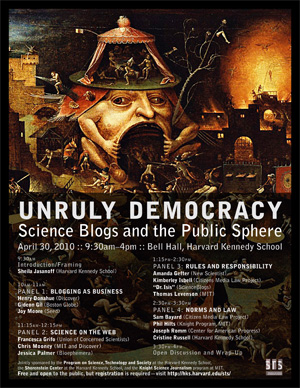 The blogosphere represents a new kind of deliberative space that is both enlarging and constraining public discourse in unprecedented ways. One key factor about this space, the issue this workshop seeks to explore, is its lack of norms. It is an unruly space in the sense that there are no well defined rules of entry, access, or conduct, except for extreme forms of behavior that are positively illegal. The consequences of this unruliness have been specially severe for scientific communication, which depends on high standards of truth-telling and civility for its progress. In turn, the erosion of scientific standards destabilizes the foundations of democratic deliberation. Can norms of discourse that would advance science and democracy be developed in the blogosphere? Can blogs induce deliberation or must they encourage fragmentation, extremism, and rage to the detriment of public reason? Is science helped or hurt by the new media? What particular distorting factors enter the picture as blogging becomes a business? Jointly sponsored by the Program on Science, Technology and Society at the Harvard Kennedy School, the Shorenstein Center at the Harvard Kennedy School, and the Knight Science Journalism program at MIT. 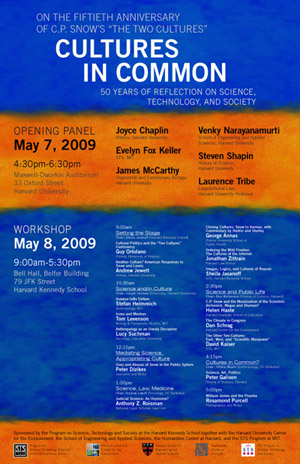 On May 7, 1959, C.P. Snow, the prominent Cambridge (UK) scientist, novelist, and government adviser, gave a lecture that introduced a memorable phrase into discussions of science's place in society. Entitled "The Two Cultures," Snow's lecture described a growing gulf between the cultures of the sciences and the humanities, a divide that Snow saw as dangerous and a hindrance to responsible education and problem solving. The 50th anniversary of that lecture marks an occasion for us to take stock and to see whether Snow's arguments hold water today. On May 7-8, 2009, the Harvard Kennedy School's Program on Science, Technology and Society, together with the Harvard University Center for the Environment, the School of Engineering and Applied Sciences, the Humanities Center at Harvard, and the STS Program at MIT, will present a panel discussion and workshop on the "two cultures." Under the heading "Cultures in Common," a distinguished roster of speakers from Harvard, MIT, and beyond will explore the many ways in which the cultures of science—far from standing apart from the rest of the academic disciplines—are in constant conversation with the cultures of the humanities, the social sciences, the arts, the law, and, not least, engineering and applied sciences. The occasion will help frame an agenda for 21st century Cambridge (Massachusetts) conversations on education and research at the intersections of science, technology, and society. Sponsored by the Harvard Kennedy School's Program on Science, Technology and Society, together with the Harvard University Center for the Environment, the School of Engineering and Applied Sciences, the Humanities Center at Harvard, and the STS Program at MIT. 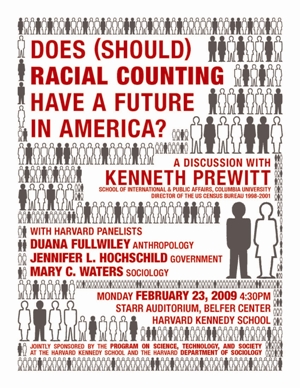 Since 1790 race statistics have been central to various policy regimes across American history. But the turn to immigrant driven diversity, identify fueled multiculturalism, and majority-minority demographics have rendered obsolete a taxonomy rooted in 18th century natural science. What today we are learning from racial statistics is not what we need to be learning. Co-sponsored by the Harvard University Department of Sociology. 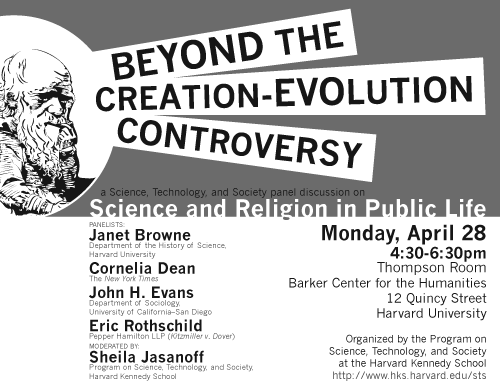 The public school systems of the United States have experienced more than 80 years of corrosive conflict over teaching evolution in biology classes. During this time, actors and strategies have changed, legal arguments have been sharpened or redefined, and even the name used to characterize the religious position has shifted, from creationism to intelligent design. What remains constant is the framing of the dispute as being between regressive religion and progressive science or, more dramatically, between faith and the Enlightenment. Positions have polarized around two major arguments, neither yielding significant hope of reframing or compromise. The pro-religion position denies the factual status of Darwinian evolution, and claims that—since it is only a theory—other theories concerning the origins of life on Earth are entitled to equal respect. The pro-science position claims that religious opposition to evolution is grounded in ignorance of the scientific method, and support for doctrines like intelligent design in the schools constitutes an impermissible establishment of religion. Attempts to make peace between these irreconcilable positions by designating spaces as clearly scientific or clearly religious have repeatedly foundered. The biology classroom is the most visible site of a broader struggle. In an effort to break through this impasse, this panel brings together an impressive, interdisciplinary group of experts from law, sociology, history of science, and journalism. Speakers will describe from their professional perspectives and personal experience, what is at stake—socially, politically, and epistemically—in the debate over evolution, and how a more nuanced understanding of this phenomenon might lead to more productive conversations between science and religion. The panel will consider how claims about the superiority of one form of knowledge over another are wrapped up in the American politics of cultural authority and with concerns regarding the freedom of thought and belief. The workshop will focus on multiple sectors of emerging S&T, as well as on theoretical and empirical contributions from several disciplines. Participants will bring varied backgrounds in STS, history, anthropology, political science, public policy, law and sociology. The aim is to showcase the latest interdisciplinary thinking on regulation through new conceptual lenses that pay attention to the strategies, cultural contexts, and discourses of regulation. The final report of this workshop is available here (PDF, 135KB). 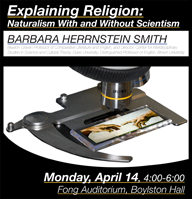 Smith's talk is concerned with a series of recent studies that offer to explain various features of religion on the basis of current research and theory in evolutionary biology and cognitive science, a project that she calls the New Naturalism. In discussing the project and some of the conceptual, methodological, and ideological issues it raises, she focuses on Pascal Boyer, Religion Explained: The Evolutionary Origins of Religious Thought (2001). She also discusses Walter Burkert, Creation of the Sacred: Tracks of Biology in Early Religions (1995), which she takes as representing a significantly broader intellectual tradition in the naturalistic study of religion. For older workshops, view the Workshops Archive. |
||||||